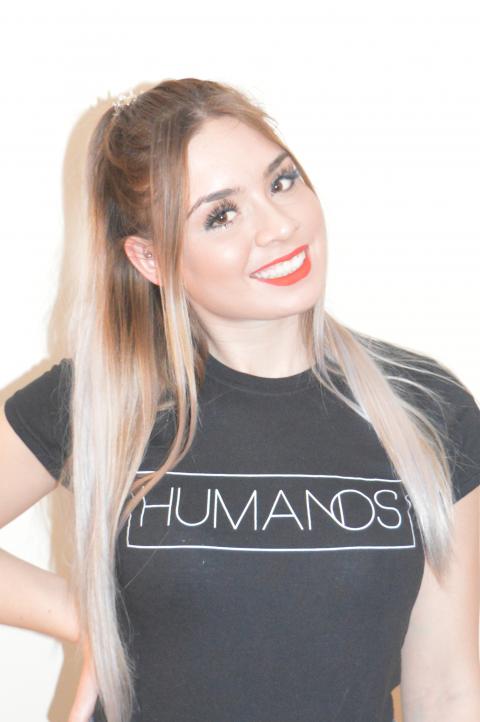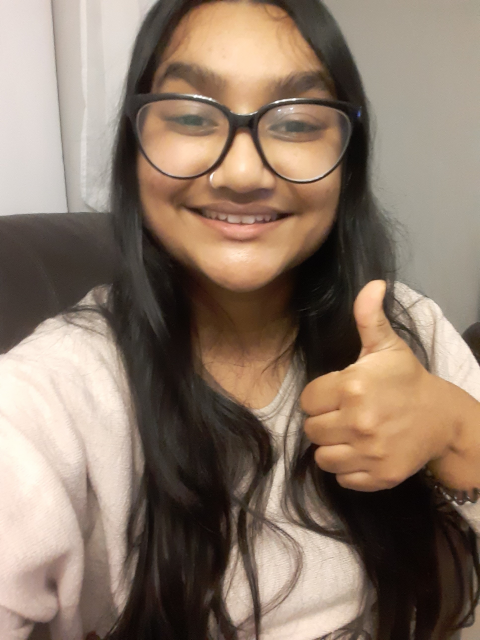Big Ideas Wales, in partnership with Unltd, the leading provider of support to social entrepreneurs in the UK, launched a joint competition to offer four aspiring young social entrepreneurs the opportunity to try out their ideas with a kickstart fund of £500 each.
The four winners presented to a panel at the final stages of the competition and all showed a real passion for their business idea, and the strength of purpose came through loud and clear.
Between Unltd and Big Ideas Wales, the winners have been offered 1-2-1 business support and specialist advice plus the opportunity to join numerous online workshops and activities to support them in developing their businesses.
As relatively new social entrepreneurs, the young female social entrepreneurs have found that the peer to peer support from each other has been invaluable as they establish and begin to develop their businesses, especially during the pandemic. Although their businesses are based in different parts of the social enterprise sector their experiences of starting and running a social enterprise have been very similar.
The group has kept in touch via WhatsApp and has received ongoing mentoring support from UnLtd and Big ideas Wales. Starting a social enterprise can be a lonely experience and this has been compounded by the ongoing situation of local lockdowns and firebreak being used to control the virus in Wales.
Hannah, Shaunnah and Tajkea all feel that it is really important to have support through mentors that you can be open and honest with and not have to keep proving yourself. Having a mentor for support means that they have been able to develop numerous business skills, such as business planning, making an impact and negotiating skills. They felt that they might not have all of the answers at this stage, but, they know that there is more support available in the future. The four hope to continue meeting for the forseeable to share their social entrepreneur journey with each other.
The social enterprises are outlined below:-
Shaunnah Crosbie is the founder of Shaunnah’s Sew Crafty where she designs and makes clothes which she sells at events and online. She is currently developing a website and has opened her own studio.
Shaunnah started teaching sewing classes when her arthritis and carpel tunnel syndrome were preventing her from sewing as much. To her surprise, she really enjoyed it, so much so that she established a private sewing school for children at weekends, focusing on making plastic alternatives. The children that she teaches range in age from 7 to 16. The various age groups were taught in separate classes, in a space that Shaunnah rented in a local library to host these sessions.
From the success of the classes, Shaunnah wanted to be able to provide this service free to children from deprived areas/those that live in poverty. This was because she was aware that, as a child, her mother would never have been in a position to pay for her to attend private classes. Textiles has also been taken off the national curriculum, and many schools are not in a financial position to provide these classes and experiences.
Shaunnah’s Sew Crafty has received funding from UnLtd and Big Ideas Wales and in the future she would like to apply for larger grants, such as those from the national lottery, which has allowed the social enterprise to provide free sewing classes in schools and youth clubs in deprived areas. Projects have focused on making reusable plastic alternatives, such as making shopping bags, lunch bags, sandwich wraps, and much more. Even learning how to make reusable nappies and sanitary products to tackle plastic pollution and period poverty at the same time.
Covid has obviously put the social enterprise on hold, but Shaunnah is using the time to develop ideas and plan for the future. She has also been taking online courses and learning about teaching and safe-guarding.
Aswell as running the social enterprise, Shaunnah is still working as a stylist. She has been working on Sex Education 3 for Netflix, but again this work has been significantly affected by the pandemic. The additional work allows her to earn money, practice her skills and develop as a stylist which helps her own brand.
Recently she has built a studio in her garden and has been working on a new clothes line which she will be launching this year.
Hannah Corns; HUMANOS
Hannah’s social enterprise HUMANOS is a fashion brand which aims to strengthen our communities and make them kinder places by promoting and symbolising the importance of
inclusivity and humanity. The fashion brand proves that these values are 'cool' and 'fashionable' and aims to help to reduce hate crime.
Hannah came up with the idea for HUMANOS in 2017 when she was a fashion student at University in Cardiff and had friends who felt judged and unwelcome due to the events such as BREXIT and terrorism, which were having an impact on the views of the community.
The mission of the enterprise is to lead a movement to create more welcome and kinder communities and to reduce hate crime. Hate crime has been significantly increasing over the past 5 years with a record of 103,370 offenses reported in 2018/19 compared to 42,255 reported offenses in 2012/13 (gov.uk). The brand symbolises this movement and the values we share, so by wearing the brand people in the community will understand the individual’s beliefs and values and will feel more connected to each other in the community.
HUMANOS has two clothing collections which are available to view on the website and to buy via Etsy. HUMANOS also uses Brand Ambassadors to promote the products, and over the Christmas period the products were sold at Christmas markets and independent shops.
During lockdown Hannah has been recognising and promoting the good deeds that others have been doing in their local communities, therefore spreading the positivity and messaging of the brand.
Website: www.humanos-fashion.com Social Media: www.instagram.com/humanos
Tajkea Chowdhury; Asha
Tajkea recently qualified as a doctor, however she is taking some time out to develop her social business idea. She is currently in the process of making an app, specifically for survivors of sexual assault/abuse who have symptoms of Post Traumatic Stress Disorder (PTSD). There are a wide range of symptoms for PTSD but one of the main things that the app will focus on is helping survivors deal with any flashbacks - where simple things such as a particular sound, smell etc triggers a survivor to relive their trauma. It can make a person forget where they are presently or even what time period they are in. The app will require users to select their own photos/music and make a personalised slideshow/playlist to help ground them back to reality.
The app is going to be called Asha. Asha is a word from her mother tongue - Bangla - which means hope, light at the end of the tunnel. She decided to use a word from Bangla as she wanted to emphasise that inclusivity will be at the heart of the app. Bangladesh also has had a tragic history with sexual crimes in the formation of the country and this connection and reminder resounded with her.
Tajkea is also looking at creating other content such as articles and outlets on the app where the user can express themselves through creativity, such as looking into a paint function. She has recently just launched the social media accounts for Asha so that she can connect with other entrepreneurs who would be interested in supporting the project as well as connecting with survivors themselves who are happy to take part in research about what their perfect support would look like.
Website: www.asha-app.co.uk Instagram: https://www.instagram.com/app.of.asha Facebook:https://www.facebook.com/App.of.Asha



